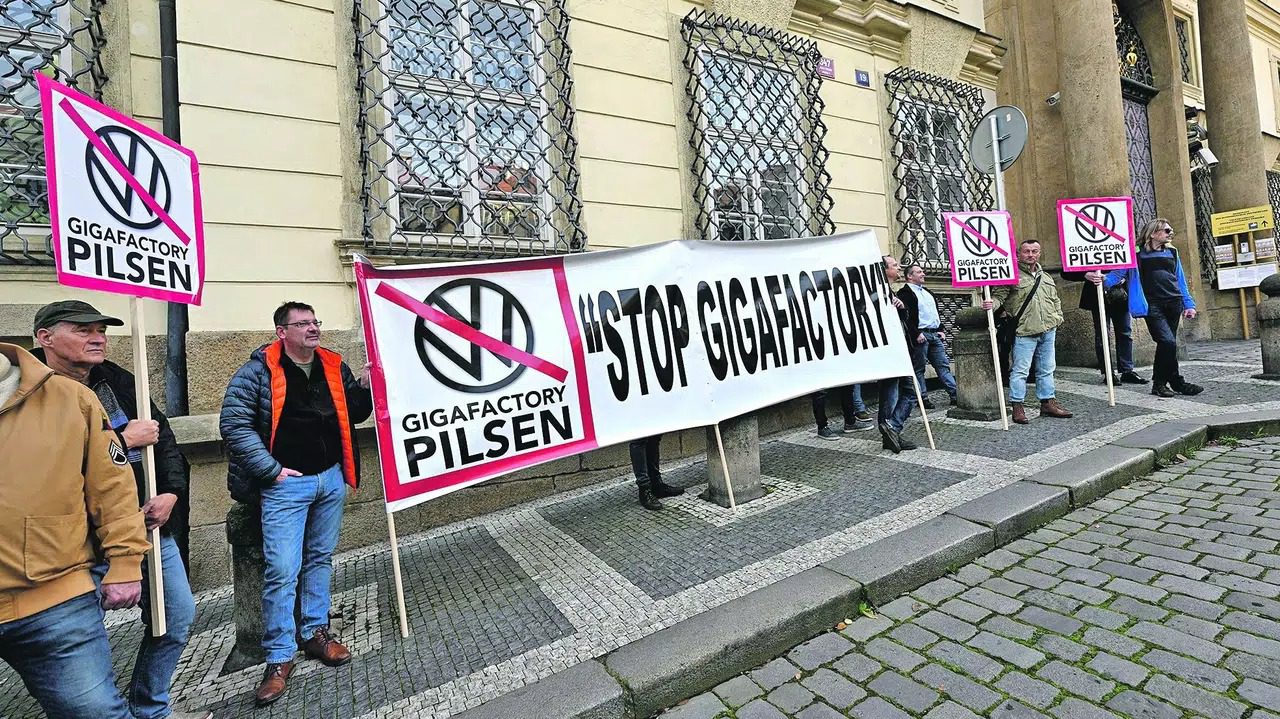The impact study for the massive factory producing batteries for electric vehicles that could be built on the former army airport in Ln near Pilsen has not yet been completed. The region will probably commission it only after the investor’s decision, which is Volkswagen.
The automotive concern is still considering sites in Poland and Hungary. The verdict is likely to come at the end of the year. “We have no input data at all yet. We lack data on what the production will look like. We estimate that there will be four to five thousand employees. We need to know details about the content of the production, for example, what risk categories the jobs will fall into,” Plzeň governor, Špoták, outlined.
According to the government, the construction of the gigafactory is a crucial investment for the Czech Republic; the project will cost around CZK 120 billion.
“To date, we have not received any documents from the Ministry of Industry and Trade. We assume that they will wait for Volkswagen’s decision, whether it is positive or negative. I understand that the ministry will not invest in an impact study if the industrial zone is not in the Czech Republic after all,” the governor added.
Vojtěch Srnka, a spokesman for the Ministry of Industry and Trade (MIT), wrote on Monday that they are ready to provide the necessary data to the region’s representatives in the coming days.
The document is to assess how the giant factory will affect transportation, the environment, housing, education, and the social system. The mayors of the surrounding communities have been calling for this document for many months. They have not yet been forthcoming.
“We officially made this demand on the first of June. Originally, the study could have been used to answer whether the territory could even sustain such a project and whether it could afford it. This will no longer be dealt with. The time has been missed. It is a great pity,” said Martin Sobotka, the mayor of Dobřany (Aktivní Dobřany).
Bernard: It won’t work without an agreement with the municipalities
In his opinion, it is essential that a quality document is created that includes all the affected municipalities, defines all the impacts, and sets out compensation.
Josef Bernard (STAN), the regional deputy for environment and agriculture, added that the central finger on the trigger is still held by the municipalities that own part of the land at the airport. “If there is no agreement with the municipalities, the project will not happen,” he pointed out.
He also said he believes in robust legal systems, regulations, and permitting processes that will not allow abuse. Hynek Brom, government commissioner and project coordinator for MIT, said some time ago that the impact study is not a condition for the concern. “Government resolutions are key,” he said.






Ready to rule the leaderboard Join the game now Lucky Cola
Experience the thrill of real-time multiplayer online games Lucky cola